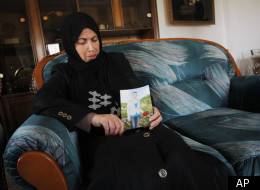Palestinian Woman Aya Baradiya's 'Honor' Killing Sparks Tougher West Bank Laws

Palestinian Woman Aya Baradiya's 'Honor' Killing Sparks Tougher West Bank Laws

SURIF, West Bank -- A 20-year-old Palestinian woman who was thrown into a well and left to die in the name of "family honor" has not become just another statistic in one of the Middle East's most shameful practices.
The killing of Aya Baradiya by an uncle who didn't like a potential suitor sparked such outrage that Palestinian President Mahmoud Abbas scrapped laws this week that guaranteed sentences of six months or less for such killings.
And in another sign of changing attitudes, the young college student is being mourned as a "martyr" and her grieving parents are being embraced, not shunned, by neighbors.
So-called "honor killings" are committed regularly in traditional Arab societies that enforce strict separation between the sexes and view an unmarried woman's unsupervised contact with a man, even by telephone, as a stain on the family's reputation. There were nine such killings in the West Bank last year, and Jordan reports about 20 every year.
Women's activists hailed Abbas' decision as a milestone in what they say is still a long road toward protecting women from such abuse.
"Such a tragic event managed to send a message that change is needed," said rights campaigner Hanan Ashrawi. "We have traction and we are going to move."
Suha Arafat, Palestinian leader Yasser Arafat's widow, emerged from self-imposed seclusion to praise Abbas. Speaking in an interview with The Associated Press, she said she tried to persuade her husband many times to take such a step, but was told the Palestinian people faced other pressing problems that needed to be dealt with first.
One of 13 siblings, Baradiya lived in the West Bank town of Surif near the city of Hebron, where she majored in English literature at Hebron University. She wore the traditional Muslim headscarf and classmates described her as chaste and noble-minded.
"She was lovely. She was intelligent. She had a big heart," said the woman's mother, Fatma, calling her daughter "the dynamo of the household."
Palestinian Woman Aya Baradiya's 'Honor' Killing Sparks Tougher West Bank Laws


